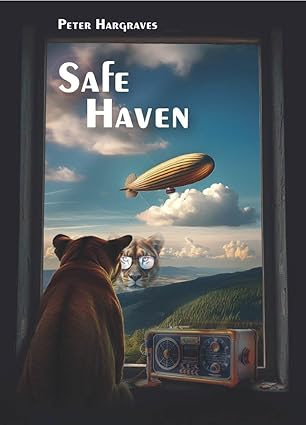5 GOLD stars
On Amazon (universal link)
On Goodreads
How I discovered this book: A favourite author.
In a Nutshell: Alternative history: what if Henry VIII had died from his jousting accident in 1536? Book #1 of a series.
I love 'what if' discussions and stories, and alternative history generally - I've read a few novels of the genre but this is easily the best. Gemma Lawrence has excelled herself with this vision of how 16th Century life would have played out had Henry VIII died in the jousting accident that caused a gruesome injury to his leg; in the real world, this plagued him for the rest of his life. Anne Boleyn was pregnant at the time and Henry had recently began his courtship of Jane Seymour. Imagine: Anne did not miscarry her baby and he didn't live to marry Jane Seymour, so Edward VI never existed. Catherines Howard and Parr had a lucky escape - and what of Anne of Cleves? Most importantly, of course, Anne Boleyn, brother George and various others were not executed as a result of Cromwell's dastardly plot to remove them.
...and there is so much more. The battle for succession: Elizabeth, Henry Fitzroy, Anne's unborn child, Mary Tudor. By the end of this book Anne has not yet given birth but already the country is in uproar, with riots and violent divisions.
Ms Lawrence's historical novels are generally told from one first person point of view, but this is totally different, with each chapter focusing on one of a variety of players. Anne, Mary, Jane Seymour, Spanish Ambassador Chapuys, Thomas Wyatt, Fitzroy and many others. Insight into the world of the common man is provided through the eyes of Magpye Grey, the young daughter of an innkeeper, and also Thomas Blank, a Moor who once fought alongside Magpye's father; in her notes at the back of the book Ms Lawrence provides an eye-opening insight about the population of people of colour in England in the 16th century, little of which I knew about. Throughout, there is much more detail about the day to day life of the time, which I loved finding out about (particularly the origin of the term 'straight-laced'!).
What I admired so much about this novel is that Ms Lawrence has considered every aspect of the court and beyond - altered fortunes for Robert Aske, Margaret Douglas, Margaret Plantagenet, Countess of Salisbury and the rest of the Pole family. Will Fitzroy still die young, now he is in a different place? The beginning of the book is fairly quiet, but the fall-out from Henry's death means that it soon gathers momentum, and it got better and better as it went on. I think that the more you know about the history of this time, the more you will enjoy it; I kept thinking, 'oh, clever!'
Well done, Gemma Lawrence, you have mastered a new genre, and I cannot wait to read the next book!







